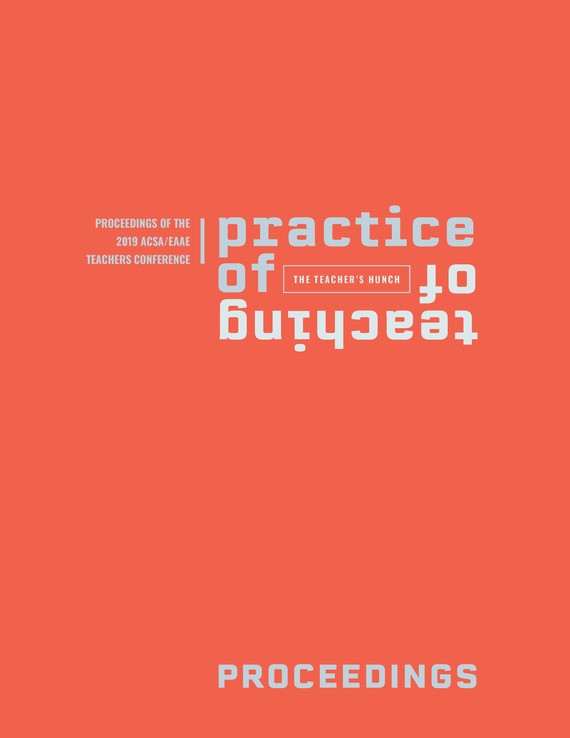Author(s): Frank H. Weiner
This essay is prompted by a single phrase embedded in the call for papers – “…the best of all available knowledge…” It would be easy to overlook the significance of this brief extracted fragment by taking for granted we know and understand what is indeed the best in the context of the education of an architect. Within the overall frame-work of the conference such considerations could be seen as offering a relevant dialectical antithesis to the main thesis of the conference. It is important to consider how questions of the ‘best’ in relation to knowledge have come to be seen by some as being of lesser importance in our conversations about education. If we do not strive for what is the best then we may loose an overall sense of telos or purposiveness in our various endeavors. The best is the highest good (both in theory and practice). So the best is at least a double condition rather than a singular condition. In Aristotle’s Eudemian Ethics there are no less than three philosophical meanings of the word “best”. First there is best as the Idea of the good (here Idea in a Platonic sense and the good are synonymous), secondly the best as the common good and thirdly the best in a practical sense. There is then a noble best and a practical best.The viability of the conference theme on “The Practice of Teaching and the Teaching of Practice: The Teacher’s Hunch” may actually rely upon establishing a foundation for determining what the best of all available knowledge consists of towards our common pursuits. Here one might propose the word ‘available’ be replaced by the word ‘possible’ so the fragment would now read – the best of all possible knowledge. The distinction between availability and possibility although seemingly minor becomes a crucial one. Availability has to do with use and acquisition in the sense that something or someone is either available or is not available. The notion of availability lacks the gravitas of possibility that can lead to actuality. With the idea of possibility emerges the transcendental question of the freedom for good and evil adjudicated under a form of divine justice. Invoking possibility over availability is an acknowledgment of the perennial importance of the ancient Aristotelian dyad of potency/act in the deeper back-ground of our theories and practices. In a world of crass availabilities, “need is so many bananas”. In what follows the word “knowledge” is understood in Aristotelian sense of the fourfold of causation giving us the possibility to bring forth what we know, what Heidegger poeticized as modes of occasioning – the material, formal, efficient and final causes.
https://doi.org/10.35483/ACSA.Teach.2019.45
Volume Editors
Richard Blythe & Johan De Walsche
ISBN
978-1-944214-23-4

 Study Architecture
Study Architecture  ProPEL
ProPEL 
